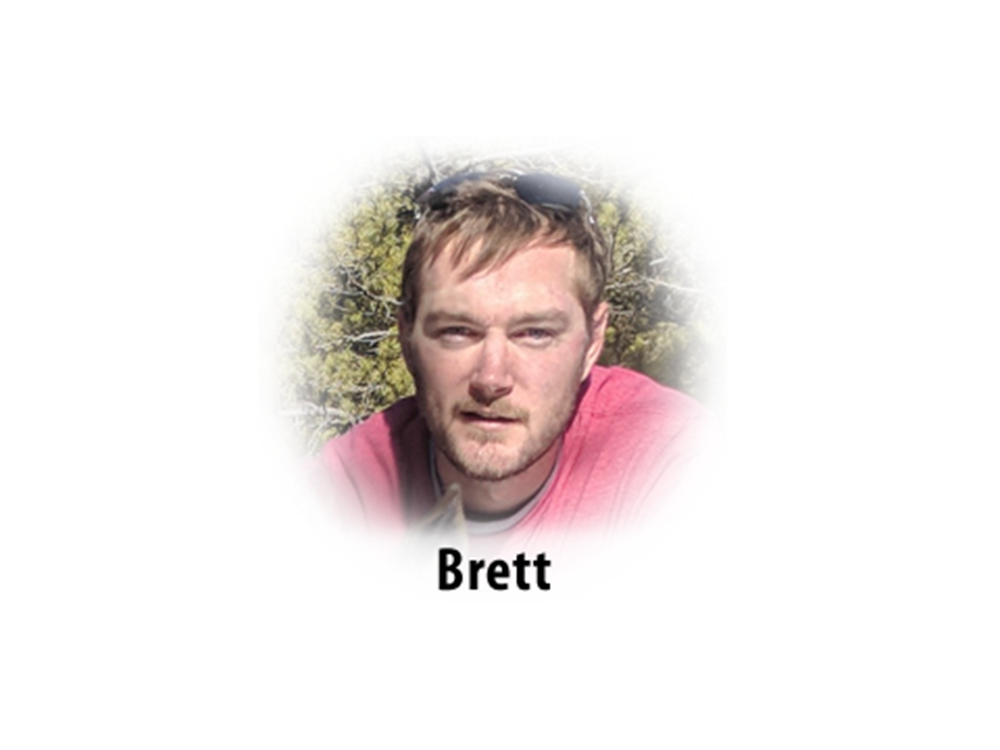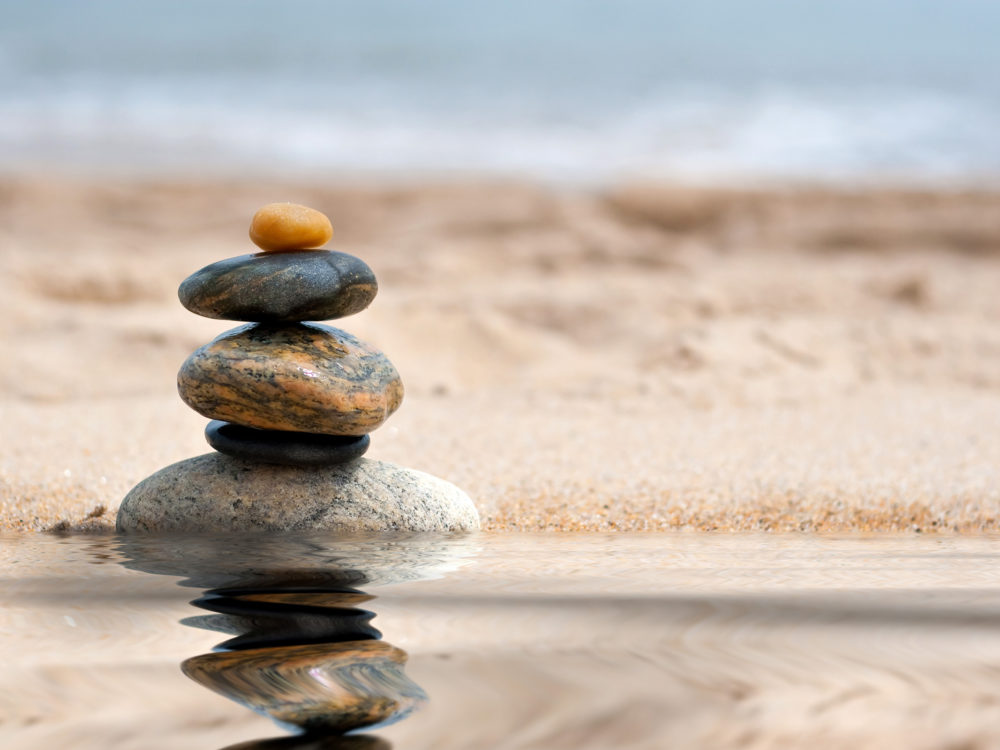Hope Speaks Cultivating Resiliency and HOPE
Resiliency
In her 2003 Psychology Today article, The Art of Resiliency, Hara Estroff Marano writes, “At the heart of resilience is a belief in oneself—yet also a belief in something larger than oneself. Resilient people do not let adversity define them. They find resilience by moving towards a goal beyond themselves, transcending pain and grief by perceiving bad times as a temporary state of affairs.”
Resilience is bending with the wind, adapting to circumstances, transcending adversity. It can mean the difference between “making it or breaking it,” quite literally. Lauren, Brandon, and Brett each exemplify characteristics of resiliency, some innate and others learned. Most of us naturally possess at least one or two resilient characteristics, but often lack others. The good news is that resilient characteristics can be learned and cultivated through practice.
Acceptance and Balance
Life is full of changes and challenges. Acceptance does not mean you are giving up, but rather feeling more peaceful about your situation. This may take some time, but it is important to be patient with yourself.
Self-awareness and recognition of one’s changing needs and desires allows for adaptation and greater balance in your life. Flexibility with life’s changes is essential to physical, mental, and emotional well-being.
Questions to ponder:
- Do I know and understand who I am today?
- Am I embracing and making the most of the person I am today?
- What can I do to create more balance in my life?

“I think it’s just human nature to want to feel good about what we do. And so, for me, deciding when something is good enough, and that it’s going to be okay, and then letting go of those expectations that I’ve put on myself, is probably the biggest challenge I’ve had to face. The physical kind of impacts that brain injuries have are difficult, and they’re very taxing. But the emotional challenge of trying to really accept that this is okay, and the new you is who you are—that’s a whole other ball game! I don’t think there’s an equation or solution for that. I think everybody has to decide that on their own.” ~Lauren

“Finding the right balance is probably the most important part of living with a brain injury. In my mind, the balance is between getting enough sleep and maintaining energy, versus getting done what I have to get done.”
“I still need to accomplish things in life, so I found more of a balance in doing what I can, but knowing that if I need to get out of something, there is a plan for that.” ~Brandon

“I feel that just because I’m different now, it doesn’t mean that my possibilities are different.”
“My hope is that I will be better tomorrow. Tomorrow doesn’t have to literally be tomorrow. Tomorrow can be five years from now, ten years from now. Hope is looking forward to another day!”
“I try not to look super far into the future because things could change. I do little things for myself, but don’t put too much weight on where I’m at, because in doing so I may open myself up to disappointment. I think if you are happy with who you are, learning how to get through and deal with life—well, I think that’s more important than trying to plan your life out.” ~Brett

“The unpredictability piece of having a brain injury is one of the hardest things to manage because you never know if pushing yourself is going to make you feel worse or if it’s what you need to get better. It can go one way or the other; it’s hard to predict. And for me, it’s kind of a balancing act. I’m still going to get things done, but I may not get them done the way I used to, and that just has to be okay.” ~Lauren

“I’ve tried to combine my rest time with something I enjoy. So either playing on the computer or binge watching a Netflix series is a time that I can double up on resting and doing something enjoyable. So I’ll combine those two a little bit, so I have some enjoyment besides just school and sleep.”
“The last semester of school I feel like I balanced my energy and school work really well. There was never a point where I was out of class for a month because I just couldn’t physically do it. And there was never a point where I was way behind and had to catch up. I was able to maintain my physical wellness enough to get through it without a major incident.” ~Brandon

“I appreciate life more now. I’m more focused on what I want to do and how I want to do it!”
“When you feel like you need down time, give yourself down time. If you don’t, you might not notice it right now, but in a few days you’re going to say, ‘Man I’m just not myself and I don’t understand why.’ You think back two or three days, and you’re like, ‘Oh yeah, I didn’t sleep that night.’ Learning how to balance that has been difficult but instrumental to functioning every day.” ~Brett
Positivity and Perspective
Numerous studies have found that there is a strong link between a positive attitude, or “positivity,” and health. Positivity can go a long way toward improving happiness in life, coping with pain, grief, and other outcomes across an array of conditions, including traumatic brain injury.*
The question becomes:
How can I develop and cultivate positive and life-affirming thoughts, behaviors, and actions to feel happy and successful?
*Retrieved 7/28/18 online from: Johns Hopkins Medicine’s – The Power of Positive Thinking

“Much of the time—probably my entire college experience—life was just about survival. I was barely getting by every single day, every moment. And when you’re in that state of mind, there’s really not a lot of self-growth that can happen because there’s not a lot of time or mental capacity in your day to say, ‘Where do I want to be in five years?’ In those times, for me, it was really about focusing on what I could do, taking baby steps, just one little thing at a time.”
“Now I feel I’ve moved on to bigger goals, dreams, and aspirations, and I’m fitting those into who I want to be as a person, and really taking that forward every day.”
“Helping people understand that their brains are important, talking about how different things affect people differently, getting information and sometimes hearing the information over and over – it’s really the planting of tiny seeds all the time that really help something grow!” ~Lauren

“I know I’ll continue to improve in some manner, whether that’s physically improving or just understanding my needs and being able to balance them better. I can look at my success today and know that I can be more successful later.” ~Brandon

“Hope means understanding that you can change every day. Whether you go forward or backward, you can do something to make yourself better down the road. Even if you go backward, it doesn’t mean you won’t learn from that. You can change and you can be better!”
“Living life and being successful right now is what’s important!” ~Brett

“When I think of my future, one of the most important things for me is teaching the future generation the overarching themes of life: empathy, compassion, and resiliency, being strong through things that you can’t control, and how to help other people be better. I imagine teaching kids and other people about that, and I think that is so important.”
“I think surrounding myself with positive people is hugely important. It was the positive people who would keep drawing me back to things that were good and healthy, and telling me, ‘It’s going to be okay.’ The people I was around who had a negative view on the world would put me in a place that didn’t help me succeed.” ~Lauren
“I feel like my appreciation for life outweighs the significance of my situation. So even when I’m having a hard day or things are really bad, I have the ability to look back and say, ‘Well, if it weren’t for my TBI, I wouldn’t appreciate the fact that I’m alive today.’”
“Because of that appreciation for life, I’m able to handle some of my emotions better, like depressive thoughts. I’m able to box them up and say, ‘Okay, this is a crappy situation, but things have been worse.’ And so I can find that silver lining in it and find a way out.” ~Brett

(When asked what she would say to her younger self about her journey): “Be kind to people. As a kid I always evaluated people. I was very quick to judge other people and I didn’t necessarily give people the benefit of the doubt. I kind of joked with myself after my brain injuries that I got my lesson in empathy (laughs)! Now that I want to be understood more, empathy is the thing I wish other people had!
I wish I had been able to love myself a little bit more throughout these experiences. Because [having a brain injury] is hard and it’s isolating. However, I never knew how strong I was. I never had any comprehension of the depth that I could go to and survive. And not only survive, but come out better because of it.” ~Lauren
Perseverance
Perseverance doesn’t mean continually pushing in a direction that’s not working. It means not giving up on yourself. It means learning what doesn’t work and adapting to what does.
To not give up is to have hope that something better lies ahead. This takes time and effort, but it is worth it for greater well-being and success!
The question becomes:
How can I persevere in spite of adversity?

“For me, HOPE is the idea that the best is yet to come, even though I may have already experienced some really great things. And hope is what I hold onto, in the nitty-gritty of daily life, to get me through the bad and on to the good. It’s what I envision being the greatest version of me in the future. Hope gives me resiliency to keep going forward. It’s the light in the tunnel.”
“I’ve had a lot of really challenging experiences in my life, and the thing I keep coming back to is that you have to be willing to fight through it and try really hard. The life we imagine or paint for ourselves is not necessarily the way the painting is supposed to turn out. It’s so important to have that spirit to keep trying, no matter where life might take you. I feel really happy about where my life has led me, and it’s not at all what I thought it would look like!” ~Lauren

“Four years of trial and error, four years of pushing too hard and crashing was very difficult! But being calm kept me from getting too frustrated over the situation, and I just kept trying something a little different. The more I’ve used the strategy of accepting when I need rest, and not pushing myself too far in those moments, the better I’ve done.”
(Update, 14 months after interview) “My level of exhaustion is much lower now. I’m feeling more encouraged to seek other treatments and therapies for some of my on-going symptoms, particularly the vision issues and Lyme disease. You have to be your own advocate and researcher to find other treatment options. I’m not giving up!” ~Brandon

“Perseverance has been a huge help. It is important to be able to say, ‘You know, tomorrow is another day,’ and look forward to better times. I tend to put a positive spin on crappy situations. With a TBI, you have to find the silver lining, because if you don’t, it can feel bleak.”
“I think to persevere is to understand that every day is a new day. It doesn’t mean every day is a good day. We recognize that things will change. We, as a community of people with TBI, can adjust and help each other.” Brett

“Overall, I tend to be very resilient. I don’t really know if that’s a character trait or a choice. It’s something I have decided to be, because I’m not going to just roll over! And I think that’s part of human nature: we want to survive from things.”
“I can definitely see how, if I weren’t resilient, I might turn toward dependency such as substance abuse, which I think is really a big issue. Also, the depression aspect of brain injury can be extremely overwhelming! Not that those are things you can necessarily just will yourself out of, but I do think that being aware and trying to maintain a balanced lifestyle has helped me. And I don’t think I could have done that without being resilient and outgoing.” ~Lauren
Learning and Rediscovery
Life is dynamic and constantly changing. The person you are today is not entirely the same person you were a year ago, or the person you might be a year from now.
Life after a brain injury often requires understanding how you may have changed since the injury. Learning and exploring needs, interests, strengths, and challenges after the injury are the first steps to planning and taking part in a meaningful future.
The question becomes:
What are my current needs, interests, strengths, and challenges, and how can I best support them through learning and rediscovery?

“It’s really important to educate yourself about brain injury. I think it’s also very important to listen (to others and to yourself).”
“The really hard part for anybody with a brain injury is not knowing what to expect from day to day. It’s easier to go through a situation that you can kind of control, so part of my learning is figuring out how to cushion myself enough that I can take care of things that come up. And then finding activities that will really help me unwind. I need to be able to sleep the right amount, and I need to be able to exercise or have time with my dog, things like that. So really honing those activities that will help me recover.”
“The best thing that I can do for myself is commit time for recovery.” ~Lauren

“Have a ‘Plan B.’ Know that even though you did all those things today and feel fine, that tomorrow could be different. You could feel great, or you could feel awful, so have plans in place for both of those possibilities, and be prepared mentally so you don’t wake up frustrated if you don’t feel good.”
“It is important for individuals with brain injuries to communicate to others that every day is different (in terms of how they feel and their capabilities).”
“I’m still learning my limits, learning what will be feasible for my future, learning what goals I should set, and still learning how to best go about achieving them.” ~Brandon

“I consider myself to be a student, first and foremost. I’m here to learn, not just at school but in life. I think I’ve been able to learn quite a few more things about life because of my TBI, and I’ve learned to understand that you are a student whether you’re in school or not. You are learning something new every day, whether it’s about simple, stupid stuff, or about life, or things you’re passionate about.”
“I thought everything was totally fine in my life. I didn’t have any problems and things were going well. Then I got in this accident and I realized there were some problems and I did need to change things. And this was my time, my opportunity. I’m hoping I can take this opportunity to change, be better, and even learn from my mistakes.” (Update, 11 months after the interview) “I’ve learned that silence and alone time have become more important. This realization brings some sadness because before the TBIs I used to be very social. I feel really good when I can have some alone time and some peace and quiet. I value these things more now.” ~Brett

“It is so important to recognize how big a role energy plays in day-to-day life. For me, it was figuring out how much energy I’d need for the rest of the day, why I was so tired at night, and what I could do to make the cycle a little easier. And I needed to learn what re-energizes me.”
“I’ve learned about myself that I am really terrible at getting places at specific times. I can’t get to work every day at exactly 8 a.m. It will be in a range. Some days it will be 7:55 a.m., other days it will be 8:30a.m. It’s helpful to be able to explain to an employer, ‘Probably best not to count on me being here at eight every morning because it probably won’t work.’ And that’s also a good thing to know as I think about my goals and dreams in life.”
“I’ve learned that the more disastrous my room is, the more my life feels out of control. If I make myself clean it, I actually feel better—physically better—in the space!” ~Lauren

“I had missed about a month of school. My professors let me catch up on the assignments, but I had to get everything finished before the end of the semester. I had finals coming up and I really wanted to stay on track for graduating, so I really needed to pass those classes. I was able to sit down and get a big chunk of the work done that seemed impossible. I really monitored my energy. I slept when I had to, I didn’t push myself too much, and I was able to finish all the work I needed. Previously, I would have pushed myself past where I should, and then I would crash and get nothing done. So that experience taught me that I do need to rest so that I can accomplish what I need to. ~Brandon
Compassion for Yourself
Do you judge yourself harshly? Are you often your own worst enemy when it comes to accepting, forgiving, and caring for yourself?
Self-compassion is vital to healing and wholeness. Being understanding and kind to yourself lessens stress and opens the heart to better ways of being.
The questions become:
- How will I nurture and be more forgiving of myself?
- What are some things that I can do each day to celebrate the “little things” in my life?

“One of the times I felt successful was actually the tiniest of moments. I was standing in my bathroom one evening, and I had just brushed my teeth, taken my pills, and flossed. I was like, ‘YES, I AM MAGNIFICENT! I FLOSSED MY TEETH!’ It was just the best moment (laughs). I thought, ‘I have been such a success today: I survived the day and I flossed my teeth!’”
“Back when all of this first started happening to me, I wish I had known what I know now: that I’m not crazy, I’m not alone, and I’m allowed to be kind to myself.”
“Brain injuries have been very humbling in many ways. I say ‘appreciate what you’ve got, while you’ve got it.’ I look at the world in an entirely new way now. Every experience is less about getting a picture for someone else and more about living in the moment so I can remember I did that. I just want to be there, be very present!” ~Lauren

“I want people to know that most of the time you get better, but if you take yourself too seriously, you’re just going to be miserable. If you forget someone’s name or stutter, it’s kind of funny, so don’t be horrified.” ~Brandon

“I still plan for the future and would like to be a successful businessman or something. I mean, I would love to make ten million dollars and be a very happy, successful person. But really, I just want to get better, learn to understand my TBI and work with it, and better myself with it.” ~Brett

“Before my TBIs, I really lived my life in the future, and I think that as a culture we tend to do that. We look towards the next thing. We think about how special we can be, how individual we can be, how many choices we can make, and how to be the best at something. It took me a really long time to let go of the notion that if I wasn’t the best on paper, I couldn’t just be the best version of me.”
“I think it’s interesting looking back and having this expectation of myself that to be somebody I had to go to vet school and become a veterinarian. That was a lot of pressure—unnecessary pressure—because I’m not in vet school and I am somebody. I’m somebody that I want to be!” ~Lauren
Self-Advocacy
Self-advocacy is often cited in research findings as a key factor in the determination of educational, employment, and life success.
Knowing your strengths, challenges, and interests is essential to developing feasible and meaningful goals that support a healthy lifestyle.
Self-advocacy also means working toward getting what you want and need. This often involves communicating your needs to others, explaining why you have a particular need, and making requests.
You can’t control the response of others, but you can stand up for yourself and represent your needs in positive, affirming ways.
The question becomes:
How can I identify and meet my post-injury needs in school, at work, at home, and in relationships in order to be more productive and successful?

“If you disclose information about your injury to your work supervisor, I think email is probably the best way. That way you have it documented. I’ve advocated for myself in the past by saying up front that I have had brain injuries but that I don’t expect that they will impact anything. If you should ever get another TBI, it’s helpful to be able to say, ‘I’m not making this up, this has happened before. I really know myself and I know that I need x, y, and z.’” ~Lauren

“For teachers and employers—people I work with who will be affected—the best thing I can do is say, ‘I have a brain injury and it causes lots of different issues. I know you can’t fully know what I’m going through, but just trust that I know what’s best for me and how to be most productive.’ So that’s my main strategy.” ~Brandon

“Advocating is hard. The best thing that I can do is just tell people that I have a brain injury and have difficulty with everyday life, sometimes in physical ways and sometimes in mental ways. I say, ‘I will do my best to accommodate you if you do your best to accommodate me.’ Generally, people are understanding.” ~Brett

“Be proactive about self-advocacy. You have to speak up before there’s a problem, not after. That took a while for me to learn. I wasn’t exactly comfortable going up to professors and talking about my situation. Now that I am, I can go up at the start of the semester and explain the situation, and that’s been very successful.”
“The OPS program helped me a lot. It really helped me learn to advocate for myself and why that’s needed. And the CBIC members really helped me accept that I’m not alone, that it’s okay to have these disabilities, and to ask for help when I need it.” ~Brandon

“The thing I found to be most helpful is just explaining to people, ‘I have a disability now. I don’t know what my everyday situation is going to look like, but I will do my best to participate if you can do your best to understand that my situation can change.’”
“I don’t feel like I have to disclose my TBI to everyday people on the street, but when I know it’s someone I’m going to have more personal interactions with on a regular basis, I do try to explain it because it can affect those interactions.” ~Brett
Community and Connecting to Resources
Complications resulting from a brain injury often present unique challenges that may require unique solutions. The importance of feeling part of a community and of accessing resources that are critical for healing and health cannot be overstated.
Reaching out and utilizing resources, such as disability accommodations, compensatory strategies, and assistive technology, are signs of resilient strength. Being proactive about finding community supports can help create a path for a more meaningful and productive life.
The question becomes:
How do I learn about and access community or campus resources?

“I would not be the person I am today if it hadn’t been for the people around me. I can think of so many people who played such a huge role, even if it felt small to them: my therapist, my family, my friends, and the Opportunities for Post-Secondary Success program at Colorado State University. I think being able to depend on people, especially when you don’t want to, help you grow into the person you can be. And I think that requires a lot of trust and patience.”
“I still depend on my support people. I’m not always happy, and my life is not all daisies and roses. I mean, it’s really hard sometimes. There have been times when I’ve gone to bed crying or I don’t understand what I’m doing or why I made the choices I did. And being able to turn back to those people, and just have them say, ‘It’s okay, it’s going to work out.’ That’s really huge!” ~Lauren

“I’d say it all comes down to acceptance of your situation and being open to the resources that are out there. A lot of students will look at programs like student disability services or the Opportunities for Post-Secondary Success program at Colorado State University and say, ‘Oh, I’m not that bad off!’ They might feel like those programs are for people who have more severe issues than they do. But as soon as you accept that you have a brain injury and it does cause some disability, there are plenty of resources out there to help you, as long as you reach out to them.”
“I would recommend being a little creative and reaching out to resources that maybe aren’t specifically for brain injuries. Just reach out to things that are similar, like when applying for scholarships. I signed up for a vision impairment scholarship because it had to do with one of my symptoms. But until brain injuries become more well-known and mainstream, you’ve got to think a little outside the box.” ~Brandon

“It’s been very, very helpful to have a community of people who deal with the same stuff and can laugh at it. Because when you try to make a joke out of your problem to people (even friends and family) who don’t understand and haven’t experienced it, they don’t know how to make light of the situation. But when you’re with other people who do understand, you can see the humor, and it helps you feel more comfortable in your own skin.” ~Brett

“After my TBI from the bicycle accident, I went to counseling almost immediately. I also went to other therapies and it was really intense for three to four months, but now I’m leaps and bounds ahead of where I was!”
“The quicker you get connected, the better your outcome will be.”
“I just wish more people could understand how hard it is, and that’s why I want to do outreach and education. It’s not necessarily fun to keep re-living my experience over and over, but it’s rewarding when other people come to events who have never had experience with brain injury. Or they have a daughter who has a brain injury, and they say, ‘Oh, I never knew!’ And you’re like, ‘Yes, it’s not just your daughter!’” ~Lauren

“It’s amazing how much less isolated I feel now that I know other people who are going through the same thing. In CBIC, if I have an issue, I know I can discuss it with them. We can laugh about these things and say, ‘Hey, this is life. Oh well. You can’t cry about it, so just laugh about it!’ It just makes it much easier to accept your own difficulties when you’re in a group of people who have also accepted their difficulties.” ~Brandon

“[What’s important is] letting people know about your situation and having things open up that you had no idea about, such as finding doctors, finding CSU Brain Injury Community, Opportunities for Postsecondary Success and the CSU Assistive Technology Resource Center. These have all been incredibly helpful!” ~Brett






